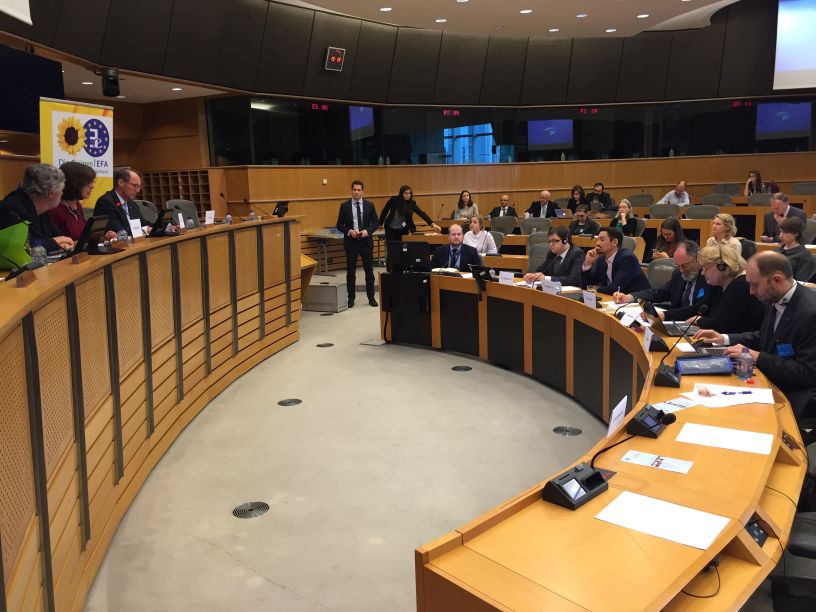

On the invitation of MEPs Heidi Hautala and Rebecca Harms of the Green faction in the European Parliament, Golos experts presented their first conclusions on the preparations of the parliamentary campaign in Russia. According to the Golos’ expert Stanislav Andreychuk, campaigning of several candidates supported by the ruling United Russia party during the regular regional and local elections is supported by companies registered in European countries like Belgium, Netherlands, United Kingdom, Lichtenstein, Luxembourg and Poland as well as in the European tax havens- Virgin Islands and Cyprus. This contradicts the Russian law according to which foreign founding for a broad spectrum of political activities is strictly forbidden.
At the same time, the United Russia’ MPs have successively restricted the rights of observers and limited the political competition and transparency. According to Golos’ experts Arkadiy Lyubarev and Roman Udot, non-partisan election observers are de facto prohibited from observing the polling which contradicts the Russian obligations stemming from international commitments. Moreover, the new amendments to the election law introduce preliminary and compulsory accreditation of observers – representatives of parties and candidates – which is limited to a single polling station for a given person, thereby preventing those observers from setting up mobile teams and observing the voting at different polling stations. Also, the new election law prohibits the freelance journalists to monitor the polling and provides for high fines for anyone accused of disturbing the voting process.
Political parties also face systematically growing restrictions despite some liberalizing steps made by the regime after the mass protest following 2011 rigged parliamentary elections. At the same time, ruling party and regime-loyal candidates profit from the full access to the state controlled media, as the research of Golos’ media expert Viktor Vakhstein shows.
Lilia Shibanova, Golos founder and EPDE-board member demanded from the European institutions more engagement and support for citizens’ observation in Russia. When deciding on the further politics towards Russia, European Parliament should consider not only the fulfillment of the Minsk-agreement but also the deteriorating situation with the human rights in Russia.
The presentation at the European Parliament was co-organized by the Swedish International Liberal Center (SILC), European Platform for Democratic Elections (EPDE) and International Election Study Center (IESC).
Subscribe to our
newsletter
Sign up for our monthly newsletter
and receive the latest EPDE news
Subscribe to our
newsletter
Sign up for our monthly newsletter and receive the latest EPDE news